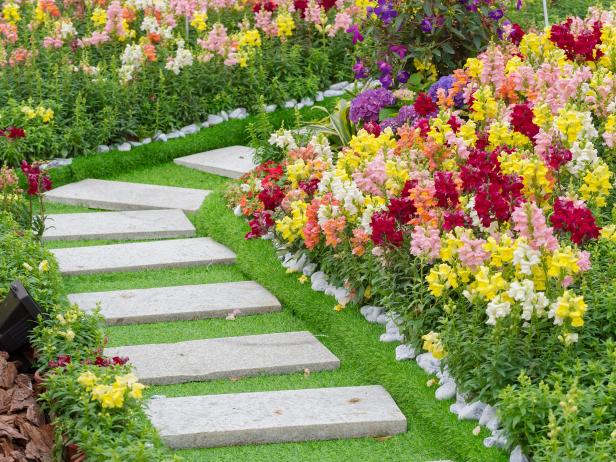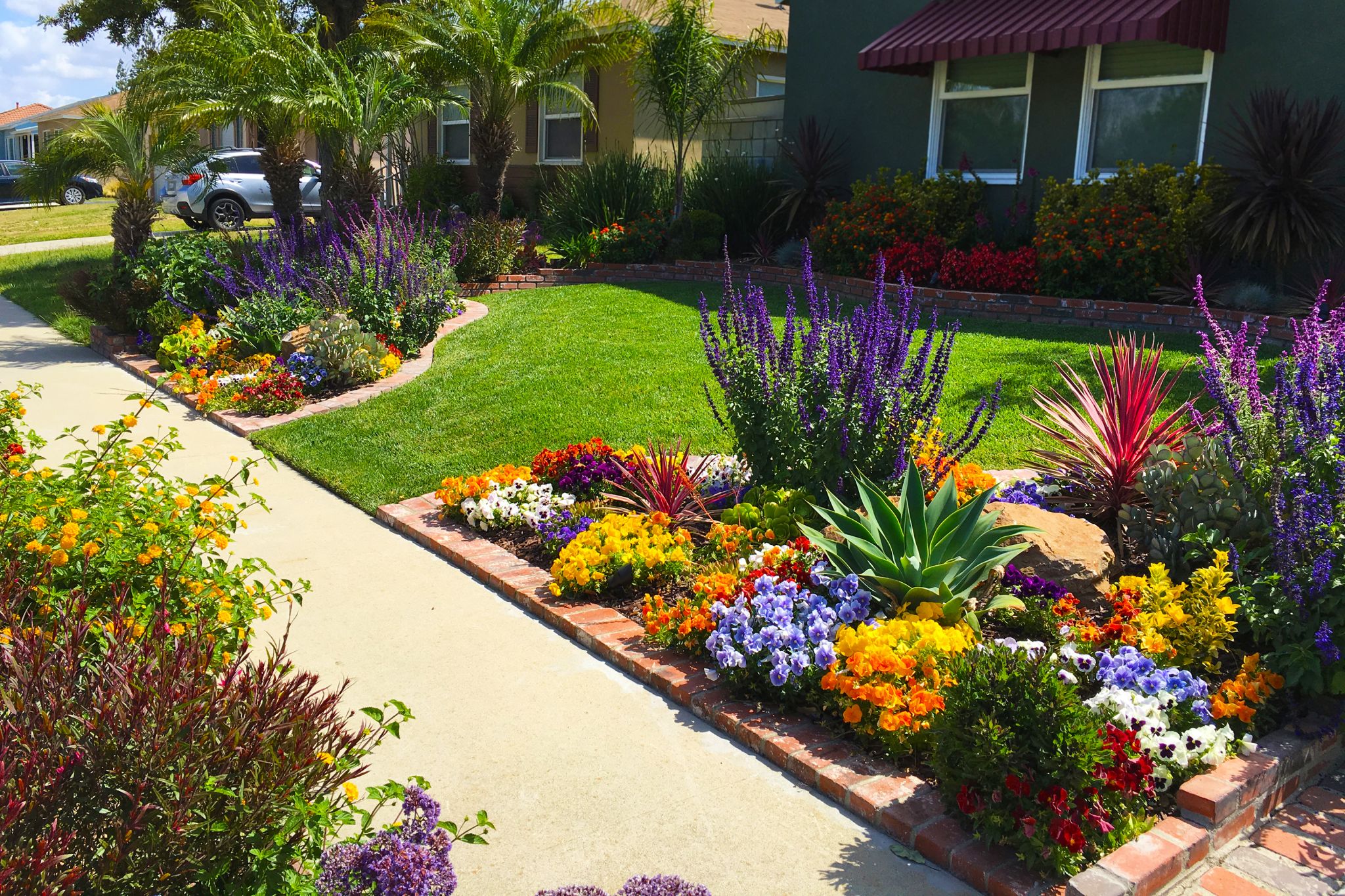Not known Facts About Backyard Design
Not known Facts About Backyard Design
Blog Article
Backyard Design: Transform Your Outdoor Space With Professional Garden Design And Backyard Enhancement Solutions
Design Principles and Aspects in Landscaping
Have you ever wandered through a garden that seemed like a secret poem whispered by nature itself? That sense of harmony and balance does not happen by accident. It's the mindful orchestration of design principles and aspects that change a spot of earth into a living masterpiece. When you think about landscaping, what comes to mind? Color? Texture? Area? These components are the fibers woven into the fabric of every successful landscape.
Balance and Unity: The Backbone of Landscape Design

Balance can be in proportion, where each side mirrors the other like a completely folded origami, or asymmetrical, where contrasts produce dynamic tension-- think about a lone oak standing tall against a cluster of wildflowers. Unity ties everything together, assisting the eye efficiently from one function to another. Ever observed how a properly designed garden never ever feels chaotic but rather invites calm exploration?
Crucial Element to Consider
- Line: It directs motion-- curved paths welcome leisurely walks, while straight lines suggest formality.
- Texture: Rough bark juxtaposed with soft grass adds sensory depth.
- Color: Beyond aesthetic appeals, color affects mood-- lively reds stimulate, while cool blues soothe.
- Scale and Percentage: A towering sculpture dwarfs delicate shrubs, so size relationships need to harmonize.
- Focal Points: Whether a water feature or a striking tree, centerpieces anchor the space visually.
Using These Concepts: A Personal Tale
Once, upgrading a yard, I faced a persistent problem: how to develop a sense of enclosure without shutting off the view. Rather of setting up a fence, I planted a staggered row of evergreens with varying heights-- a subtle play on percentage and scale. The result was a natural screen that seemed like a cozy nook instead of a barrier. Isn't it interesting how thoughtful application of design aspects can solve practical challenges while enhancing charm?
| Concept | Result | Example |
|---|---|---|
| Balance | Produces harmony | In proportion flower beds |
| Unity | Visual cohesion | Constant plant style |
| Centerpiece | Draws attention | Water fountain |
| Scale | In proportion elements | Large trees with little shrubs |
| Texture | Varied sensory feel | Mix of rough stones and smooth leaves |
Exploring Diverse Landscaping Designs
Why choose a cookie-cutter garden when nature provides a scheme of styles as differed as the seasons? From the serene zen gardens of Japan to the wild, untamed appearance of naturalistic landscapes, each style shapes not just the soil, however the soul of your outdoor area. Do you crave order or chaos in your plant?
Popular Landscaping Styles and Their Essence
- Official Gardens: Symmetry and accuracy rule. Envision walking through a labyrinth of perfectly clipped hedges where every corner whispers careful care.
- Cottage Gardens: Overflowing with color and charm, this design welcomes spontaneity, much like an artist's canvas splashed with lively blooms.
- Desert Landscaping: Accept drought-resistant plants and stones; a nod to resilience in dry environments, where every component narrates of survival.
- Modern Minimalist: Clean lines, basic shapes, and restrained plant palettes develop a tranquil, almost meditative space-- less really is more here.
Professional Tips for Choosing Your Style

- Assess your soil and environment-- does the design prosper naturally, or will you battle versus environment daily?
- Match the landscaping style to your lifestyle; do you want a low-maintenance retreat or a hands-on job?
- Think about the architectural style of your home-- does your garden echo or contrast with your house?
- Use native plants where possible; they offer environmental balance and lower the need for extreme watering or fertilizing.
Ever observed how some landscaping develops narrate while others simply embellish? The secret lies in thoughtful layering-- mixing textures, heights, and colors to craft a living story. A pal as soon as lamented her garden's absence of character till she introduced a winding course lined with aromatic herbs. All of a sudden, every see ended up being a sensory journey, not simply a visual experience.
Important Tools and Devices for Mastering Landscaping
Ever tried battling with a persistent root without a pruning saw - Landscape Design.?. !? It resembles attempting to paint a masterpiece with a broom. The right tools don't simply make the job easier-- they change your entire technique to landscaping
Think about the humble spade. It's more than just a hole-digger; a sharp, healthy spade can sculpt the earth with finesse, whether you're edging a flower bed or transplanting a delicate shrub. But beware: dull edges turn effort into disappointment.
Essential Hand Tools
- Hand trowels for accurate planting
- Ergonomic loppers to prune without strain
- Garden forks that aerate soil, boosting root development
- Weeders that sneak under pesky invaders without disturbing neighbors
Power Equipment That deserves the Financial investment
When surface gets hard, a rototiller breathes life into compressed ground, turning hardpan into a welcoming bed for seeds. Even with contemporary makers, comprehending soil texture and wetness content remains essential-- overworking the earth can lead to compaction, the quiet enemy of healthy landscaping.
| Equipment | Best Usage | Specialist Idea |
|---|---|---|
| Hedge Trimmers | Shaping bushes and hedges | Trim throughout dry weather to avoid fungal infections |
| Wheelbarrow | Transporting soil, mulch, and plants | Balance loads evenly to lower back pressure |
| Leaf Blower | Clearing particles quickly | Use morning or late night to reduce disruption |
Have you ever saw how the smallest tool can pivot your landscaping experience? A pair of quality gloves shields your hands however likewise offers unforeseen grip, making each job smoother (Landscaping). The secret lies in combining the best devices with technique-- sharp tools wielded with care outperform brute force any day
Environmental Impact and Sustainability in Landscaping
Have you ever paused to consider just how much water your garden guzzles throughout a dry spell? Water conservation isn't simply a buzzword-- it's a lifeline for sustainable landscaping. When plants are selected without regard to local environment, the thirst they require can drain resources faster than one may think of. I recall a job where native drought-resistant plants transformed a dry backyard into a vibrant oasis, slashing water usage by over 40%. Why choose thirsty exotics when get more info nature's own palette loves less?
Soil Health: The Unsung Hero

Soil isn't simply dirt; it's a living tapestry bursting with microbes that govern plant health and carbon sequestration. Overlooking soil destruction is like constructing a house on sand. Composting natural waste and incorporating cover crops can renew worn out earth, enhancing nutrition biking and water retention. Ever discovered how mulching can all at once suppress weeds and lock wetness in? That's the sort of double-duty approach that raises sustainable landscapes.
Specialist Tips to Boost Eco-Friendly Landscaping
- Pick native or adaptive plants to minimize chemical inputs and irrigation needs.
- Incorporate rain gardens or bioswales to manage stormwater overflow efficiently.
- Limit hardscaping surface areas to avoid heat islands and promote groundwater recharge.
- Usage permeable materials for paths and patio areas to encourage natural water seepage.
- Implement layered planting methods to mimic natural environments and increase biodiversity.
Stabilizing Visual Appeals with Ecology
Can a garden be both a banquet for the eyes and a sanctuary for wildlife? Absolutely. I've seen landscapes where pollinator-friendly plants attract bees and butterflies, turning yards into buzzing communities. This isn't just a feel-good gesture; it aids in ecosystem restoration, assisting native types rebound. The secret depend on thoughtful style that embraces imperfection-- leaves left to decay, wildflowers enabled to bloom untamed.
| Practice | Environmental Advantage | Execution Tip |
|---|---|---|
| Rainwater Harvesting | Reduces potable water use | Set up barrels connected to downspouts |
| Native Plant Selection | Supports local fauna and lowers irrigation | Seek advice from local plant guides |
| Organic Mulching | Improves soil wetness and fertility | Usage shredded leaves or bark |